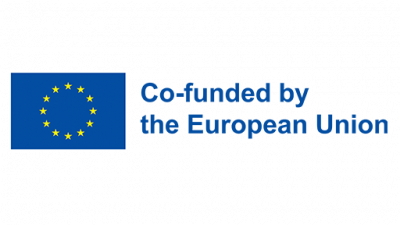Project
Towards inclusive vocational education
Project sponsors
Project type
Focus area
Implementation time
1.3.2024
-
31.8.2026
Project unit
Financing program
European Social Fund Plus (ESF+) 2021-2027
Project description
Towards inclusive vocational education
The broader objective of the project is to ensure that all students studying in vocational education, mainly students belonging to especially welcome groups, receive the support they need to acquire the necessary skills, complete their studies, and find employment on an equal basis. To achieve this broader goal, the project aims to:
1. clarify the processes and practices of special support and multi-professional collaboration in vocational institutions;
2. improve the competence of vocational education personnel in supporting students and multi-professional collaboration;
3. develop vocational teacher education, special teacher education, and student counseling education to provide better qualifications for inclusive education development; and
4. rooting and spreading the developed models and tools widely in use nationally, also in cooperation with the JOPPI project and other projects.
Changes in vocational education legislation and operating environments, the development of inclusive education, the development of continuous learning, and the expansion of compulsory education pose challenges to vocational education. Recent studies and surveys have shown that special support is unevenly implemented in different educational institutions. The Karvi report (2021) also highlighted the need to develop the competence of teaching staff and collaboration practices. The project aims to strengthen collaboration between vocational education providers and between vocational education providers and vocational teacher training colleges in the development of special support.
As a result of the project, the processes and practices of special support and multi-professional collaboration in vocational institutions have improved and become more consistent throughout Finland. Students who require special support in vocational education, as well as students who belong to specific welcome groups, enroll in education, remain committed to their studies, complete parts of their degrees and degrees, and find and remain employed (playing a role in continuous learning). The capacity of vocational education personnel to support all students and collaborate multi-professionally has improved. Education, working life, and society are developing in a more inclusive direction regionally and nationally. Teacher training colleges share a common understanding of special support and multi-professional collaboration and are capable of training skilled vocational teachers, special education teachers, and student counselors. Permanent regional networks for inclusive education and special support collaboration and development have been established between vocational teacher training colleges, vocational education providers, and vocational special schools following the project.
Concrete outputs of the project include:
1. Operational recommendations and/or tools for evaluating the implementation and quality of special support;
2. Operational recommendations for supporting students in need of demanding special support in vocational schools, in cooperation with institutions that provide demanding special support;
3. An online library of evidence-based good practices in special education for vocational education;
4. An open training package for vocational education personnel on supporting students with special needs in their studies and employment;
5. Descriptions of the process and methods for developing expertise in special needs and multi-professional cooperation for vocational education personnel;
6. Shared learning objectives and principles for special education teacher training, which are applied by vocational teacher education institutions;
7. A training and orientation package for teacher educators.
As part of its societal impact, the project has participated in the public discourse on issues related to inclusive vocational education. The project enables nationwide co-creation and impact and aims to reach the entire country. It allows for a new kind of development cooperation between vocational teacher education institutions and vocational education providers, with a focus on improving the quality of special support in vocational education. Nationally, common criteria and guidelines will be established for implementing high-quality special support. At the same time, cooperation between educational administration and regional education providers will be strengthened.

Seija Eskola
Lehtori, Senior Lecturer
Opettajankoulutukset, Teacher Education
Ammatillinen opettajakorkeakoulu, Professional Teacher Education
+358406214680
